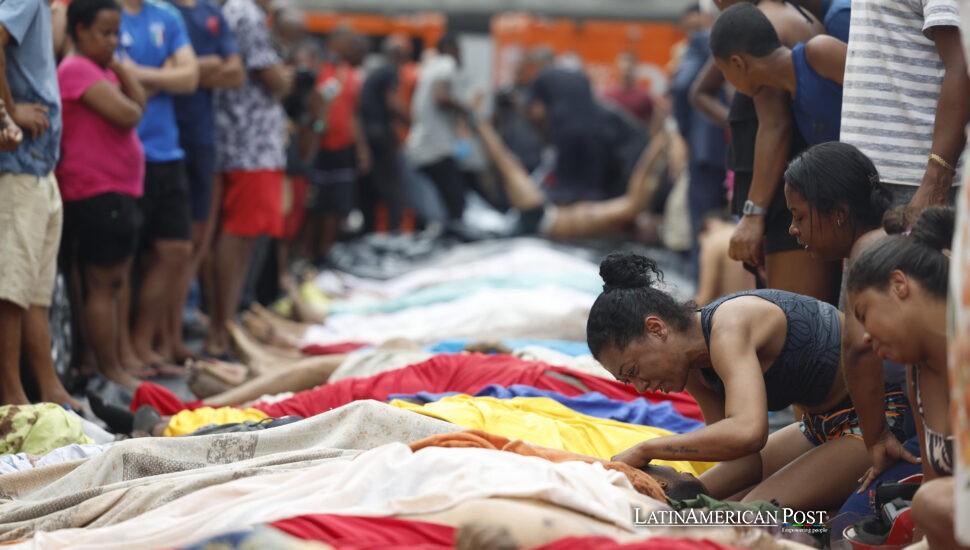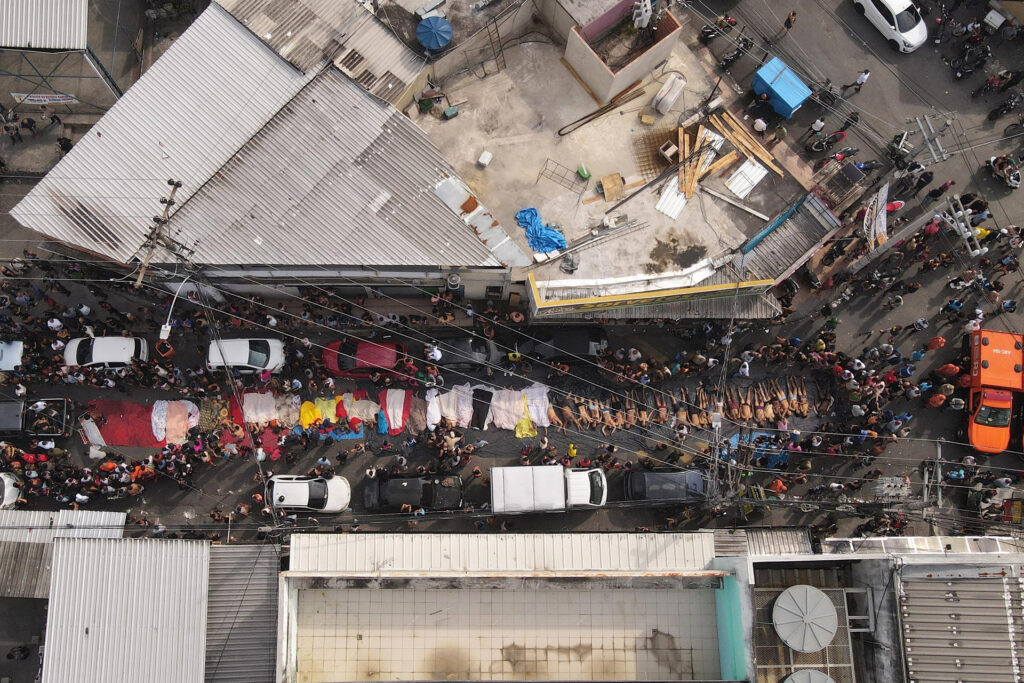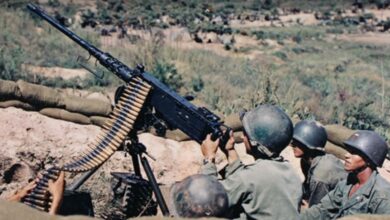Brazil’s War on Faith and Firepower: Inside Rio’s Deadliest Raid

When the smoke lifted over Rio de Janeiro’s northern hills, at least 134 people were dead—four of them police officers—and 2,500 more uniformed men stood guard over silence. Operation Containment, Brazil’s largest security raid in years, was over. But what lingered was not triumph. It was a question: what did any of this solve?
A show of force without a strategy
The raid began before dawn. Armored trucks rolled into the Alemão and Penha districts, dense labyrinths of brick and wire near Rio’s airport. Police described them as a headquarters for the Red Command, one of Brazil’s oldest and most powerful drug gangs. What followed was chaos—gunfire, burning barricades, and, according to officers, bombs dropped from drones. By nightfall, 64 lay dead, more than 80 were in custody, and the roads were sealed as if the city had gone to war.
State officials said most of the dead were “suspected criminals.” Residents told another story: of bullets slicing through windows, of children huddled in classrooms, of helicopters hovering so low their rotors shredded laundry lines. The UN Human Rights Office, as reported by the BBC, said it was “horrified” and urged “prompt and effective investigations.”
Rio’s police claim the operation followed a year-long investigation, recovering drugs and rifles. But the arithmetic of violence remains unchanged: tons seized, lives lost, nothing transformed. “It looked like a war zone,” one resident told the BBC. And that, many fear, was the point. In Brazil, massive raids often precede global spotlights. COP30, the UN climate summit, will unfold in the Amazonian city of Belém in November. Security spectacles may please cameras and voters. They rarely bring peace.
Even stripped of politics, a mission that leaves dozens dead but offers no plan for what follows is not a policy—it’s a reflex. Once the cameras leave, residents return to the same schools and markets where bodies fell. The silence after the gunfire is not relief. It is the sound of fear settling back in.
Faith, fear, and the rise of narco-religiosity
Behind the violence, a quieter transformation is reshaping Rio’s criminal landscape. Gangs are adopting the language of religion—and twisting it. The BBC uncovered how the Pure Third Command, a rival faction, rebranded five favelas in Rio’s north as the “Israel Complex.” Cocaine there carries the Star of David stamped into its packaging—not as homage to Judaism, but to a Pentecostal prophecy about the return of Jews to Israel.
This fusion of faith and firepower is what scholars now call narco-religiosity. Theologian Vivian Costa, author of Evangelical Drug Dealers, told the BBC that traffickers have begun seeing themselves as “soldiers of crime,” calling Jesus “the owner” of their territories. The irony is savage: pastors’ verses painted on the same walls where gangs enforce rule with AR-15s.
Costa cautions that religion has always been part of Rio’s criminal codes. “From the birth of the Red Command,” she said, “Afro religions and Catholicism were there—Saint George, Ògún, crucifixes, offerings.” The current wave is different only in style: evangelical slogans instead of candles, prayers instead of chants. Faith has become armor and a brand.
The story of Pastor Diego Nascimento proves how close salvation and sin can stand. A cheerful 42-year-old Methodist minister, he once ran Red Command operations in Vila Kennedy. Prison and crack addiction nearly killed him. “I lost my family,” he told the BBC. “I lived on the street.” His conversion began when a gangster preached with a pistol in his hand. Nascimento walked away from the trade and now preaches inside prisons. But his warning is sharp. “There is no such thing as a religious drug dealer,” he said. “If you follow Jesus, you can’t traffic. Period.”
Nascimento’s faith rescued him. Others wield it as a license.
Rights collateral: policing, prejudice, and faith under siege
When the guns fall silent, what remains are principles tested by fire. Brazil’s constitution promises religious freedom. In the favelas, that right now depends on who controls the hill. Sociologist Christina Vital told the BBC that entire neighborhoods live “under siege”—not only from gangs, but from theology. In the Israel Complex, she said, “people with other beliefs cannot practice them publicly.”
Dr. Rita Salim, head of Rio’s Department for Racial and Intolerance Crimes, said the difference lies in power. “These cases are more serious because criminal organizations impose them,” she told the BBC. “They impose fear on the entire territory.” Police have issued an arrest warrant for the Complex’s top commander, accused of ordering an armed attack on an Afro-Brazilian temple.
For Marcio de Jagun, Candomblé priest and Rio’s coordinator for Religious Diversity, this is a “neo-Crusade.” Gangs demonize African-rooted faiths, labeling them satanic. “It’s prejudice that’s both racial and spiritual,” he said.
The graffiti scrawled across some walls—”Jesus is the Lord of this place“—reads not as prayer, but as a threat. When law enforcement fails to defend worshippers, the message deepens: that some gods, and some lives, are expendable.
The UN’s call for accountability is not meddling. It’s a reminder that every bullet fired in a favela ricochets through Brazil’s democracy. Without justice, policing turns from protection to persecution.

From COP30 optics to absolute security
With the world arriving in November for COP30, Brazil wants to prove it can secure its cities. But optics are a dangerous master. Performative raids may satisfy headlines, yet they drain the trust that absolute security requires.
What Brazil needs now is precision, not spectacle: targeted arrests that dismantle command structures rather than bury foot soldiers. That means strengthening investigations, protecting prosecutors, and using body cameras and independent monitors so the public can see why force was used and against whom. It also means protecting the rights that gangs exploit—offering education, jobs, and credible paths away from the drug economy. A raid can seize 200 kilograms of cocaine. It cannot replace the income of those who carry it.
For faith communities, the same logic applies. Defending Afro-Brazilian temples and churches from intimidation is not cultural tokenism—it’s a constitutional obligation. The fight for religious freedom is the fight for citizenship itself.
Brazil has waged wars on drugs, gangs, and ghosts. It has yet to win peace. As the BBC’s reporting shows, Operation Containment revealed more contradiction than control: a state that promises safety through violence, and criminals who promise salvation through fear.
Also Read: The Vanishing Line: Peru’s Mashco Piro and the Village Caught Between Worlds
When world leaders gather in Belém this November, Brazil will have another chance to show what kind of power it wishes to wield—the power to intimidate, or the power to rebuild. The numbers from Rio’s deadliest raid already tell a grim story. What comes next will decide whether that arithmetic becomes Brazil’s fate—or its turning point.





